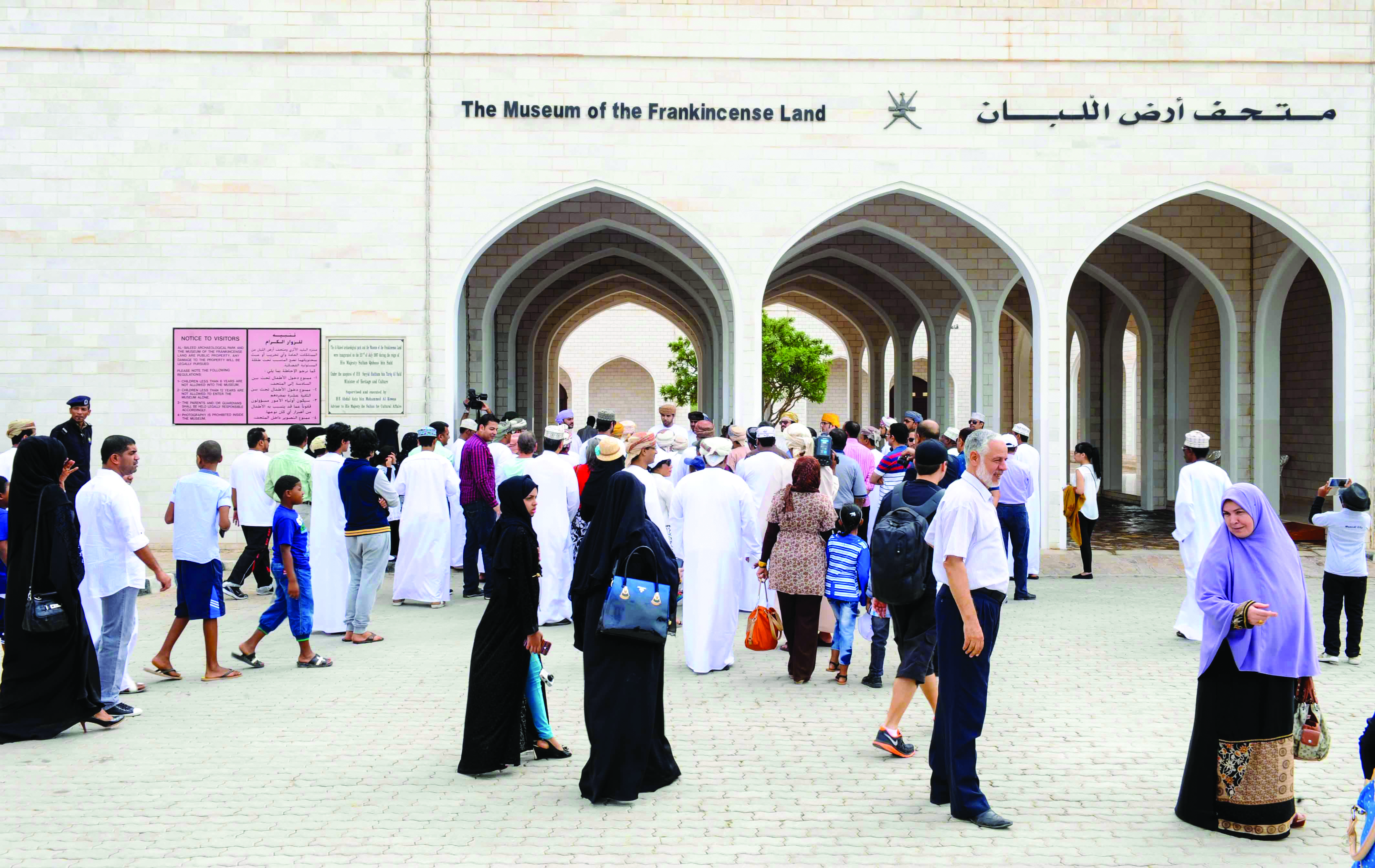
Salalah: Archaeological sites under the supervision of the Office of His Majesty the Sultan’s Advisor for Cultural Affairs have become important attractions for the tourists in the Governorate of Dhofar.
According to statistics prepared by the Office of His Majesty the Sultan’s Advisor for Cultural Affairs, the number of visitors to the Frankincense site in Dhofar from January 1 to August 16 stood at 119,621. Further, the Office of His Majesty the Sultan’s Advisor for Cultural Affairs is working to develop several archeological sites and provide them with the services needed to promote cultural and archeological tourism in Dhofar. Ghanim bin Said Al Shanfri, Director of the Frankincense Sites Department at the Office of Cultural Affairs, said in a statement to Oman News Agency (ONA) that the marine façade at Al Baleed Archeological Park has been completed.
It includes many coffee shops located directly with beach views to provide services to visitors. An information centre was also set up at the Wabar and Samahram archeological sites.
He added that the Office has developed a scientific plan to unearth additional archeological sites.
This plan includes archeological excavations, as well as their associated scientific and historic sites.
He also pointed out that excavations are underway at these archeological sites. Al Baleed Archeological City, which stretches over 640,000 square metres, is located on the coastal strip in Salalah.
There is a common consensus among archeologists that the site dates back to the Islamic era.
The Frankincense Land Museum, which was opened on July 23, 2003, provides an overview of Oman’s history, including a summary of Oman’s rich culture throughout the ages. The archeological sites that were recognised and included on the World Heritage List under the name the Frankincense Road in 2000 includes Wadi Dokah, Shasr, Wabar, Khor Rori, Samhram and Al Baleed.
The listing comes in recognition of these sites’ historic value to the world.